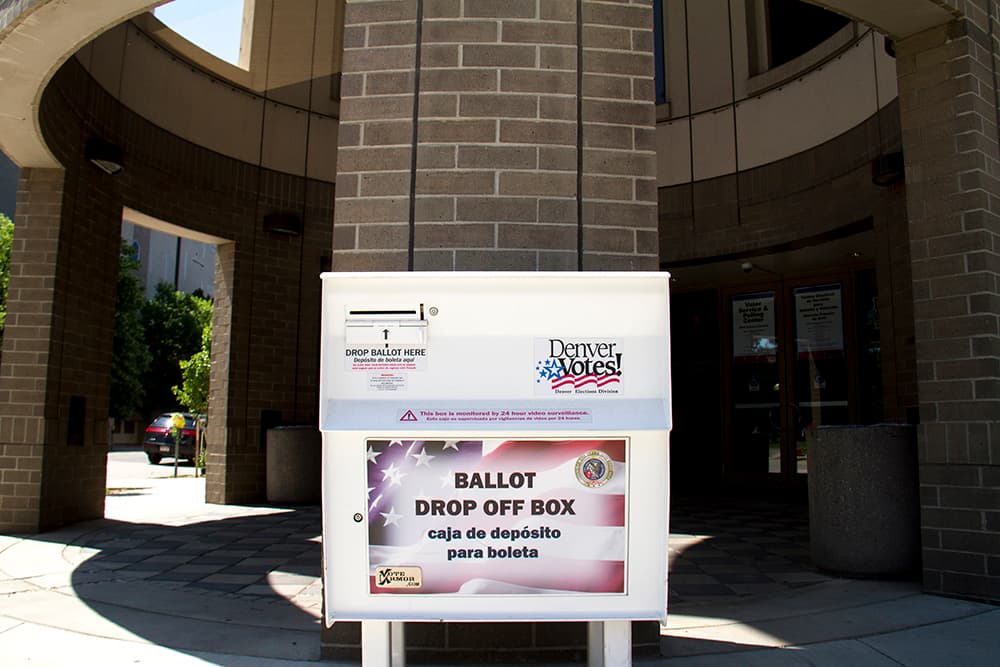
Colorado had a presidential primary in 1992, 1996 and 2000 and then returned to its old caucus ways to save money. Proposition 107 would bring back the presidential primary as a mail election open not just to party members but also to unaffiliated voters.
Here's the language you'll see on your ballot:
"Shall there be a change to the Colorado Revised Statutes recreating a presidential primary election to be held before the end of March in each presidential election year in which unaffiliated electors may vote without declaring an affiliation with a political party?"
What does that mean?
Instead of a caucus, Colorado would hold a mail election in March just to express our presidential preferences. No other issues or races would be on the ballot.
Unaffiliated voters could participate in either the Republican or the Democratic primary but not both. Unaffiliated voters would get a ballot with candidates for both parties on it, but they could vote for only one. If they voted for candidates in both parties, their ballot wouldn't be counted.
The state and the counties would pay for the election. Currently, the parties pay for the caucuses.
The winners of the primary would get all the delegates for the state, and they would be bound to support that candidate at the national convention.
Why change?
The call to return to a presidential primary picked up this year because the Republicans canceled their presidential caucus and many Democratic caucus locations were overcrowded, with some groups even voting before everyone was in the door. The legislature considered a presidential primary proposal, but the Republican-controlled Senate shut down discussion of a bill that would have allowed unaffiliated voters to temporarily affiliate for purposes of the primary.
A presidential primary conducted by mail is undoubtedly easier for many people to participate in than a caucus, which requires spending several hours at a meeting on a weeknight and voting in public.
Proposition 107 represents a more significant change, though, in that it opens the process to independent voters. Unaffiliated voters account for roughly a third of all Colorado voters, and some people believe they should have the ability to participate in choosing the presidential candidates.
What will it cost?
The state estimates that counties would spend around $5.3 million to conduct a presidential primary in 2020. The state would reimburse them for $2.6 million or nearly half of that cost.
Who supports it?
The Denver Metro Chamber is joined by a number of other business-oriented groups in pushing Proposition 107 and the separate but related Proposition 108, which would let unaffiliated voters participate in the primaries for other offices held in June.
As described by Colorado Public Radio, there's a school of thought that closed primaries lead to more extreme, less centrist candidates and that engaging more independent voters will result in more pragmatic candidates and policies. Political scientists aren't sure that's the case, as parties still play a big role in who runs and gets support, but hey, maybe it's worth a shot.
Proposition 107 also has the support of Gov. John Hickenlooper, a number of former governors of both parties, including Bill Ritter, Bill Owens and Dick Lamm, and the Metro Mayors Caucus.
Who opposes it?
Some county clerks have expressed concerns about implementation, particularly of the dual ballot that independent voters will get. The Republican and Democratic parties believe they should have the ability as membership organizations to limit participation to their members. Why should people who aren't Democrats or who aren't Republicans get to choose whom those parties nominate?
Important programming note.
Propositions 107 and 108 are supported by the same people and campaign literature includes both measures. You can vote for one or the other. You don't have to vote for both.












